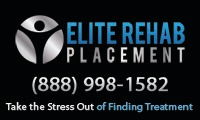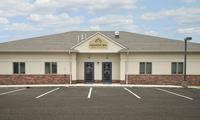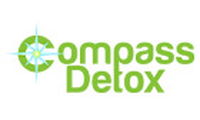Suboxone Rehab

A person in active opioid addiction has developed a physical dependency to the substance, and cutting it out of the body altogether can cause negative withdrawal symptoms—some of which can be life-threatening. Through medication-assisted treatment and medications like Suboxone, the brain and body are able to recover gradually, an approach that's often safer than the cold-turkey method.
What is Suboxone?
Suboxone is a synthetic opioid made of both buprenorphine and naloxone and was designed specifically to treat opioid addiction. Other drugs like methadone have been around longer and used to be the most popular medication for opioid recovery, but it wasn’t originally invented to help treat opioid addiction.
Approximately 115 people die every day from opioid overdose. Whether a person is using prescription painkillers or heroin, recovery isn't as easy as simply quitting. Opiates often require a long recovery process with a treatment program, community support, and often, the help of certain medications. This is called medication assisted treatment (MAT)
The most popular medications used to treat opioid addiction are methadone, buprenorphine, naloxone and, most recently added to the lineup of medications, Suboxone.
Suboxone is made of 80% buprenorphine and 20% naloxone. Here's how each active drug in Suboxone benefits those recovering from opioid addiction:
- Buprenorphine.
Buprenorphine is an opioid partial agonist, meaning it produces similar effects to opioids. These effects are often weaker than drugs like prescription opiates, heroin and methadone. Buprenorphine can help lower the potential for opioid misuse, decrease the effects of opioid dependency, and increase safety and survival in overdose cases.
- Naloxone.
Naloxone is a medication that helps prevent overdoses of opioids like heroin, morphine and oxycodone. Naloxone blocks opioid receptors in the brain and can reverse the effects of an overdose. On its own, Naloxone can be injected into the muscles, under the skin, or intravenously and is not an addictive or mind-altering substance.
When naloxone is added to buprenorphine there is decreased likelihood that people will misuse the drug, as the naloxone counteracts many of the opioid effects, providing enough strength to bind to an opioid receptor, but not strong enough to produce a high when taken safely.
How is Suboxone Used?
Suboxone is used to treat people recovering from opioid addiction, helping them gradually wean their bodies off of heroin or other powerful opiates. Suboxone is a partial opioid agonist, meaning it binds to the brain's opioid receptors, but not to the same extent as heroin or other powerful opiates.
Suboxone is prescribed by a physician and appropriate dosages will vary from person-to-person. It can be taken in a few forms, such as Suboxone pills, or Suboxone strips that are dissolved on the tongue.
Over time and under the supervision of a trained medical professional, a Suboxone dose will be decreased, helping a person taper down their dosage until they're ready to handle the negative effects of withdrawal on their own. The taper-down approach allows potential withdrawal symptoms to lessen, while allowing a person's recovery to be stronger through treatment programming, the development of healthy coping skills and support from therapists and sober peers.
Suboxone Side Effects
Suboxone is a powerful medication that can cause some side effects. While not everyone will have the same set of side effects, it's important to talk with your doctor about the risks before using the medication as a part of your recovery.
Suboxone side effects may include:
- Headaches
- Dizziness
- Numbness
- Muscle aches and cramps
- Sleep problems
- Nausea and vomiting
- Trouble concentrating
- Irritability
- Fever
If you experience side effects it’s important consult your health care provider and not self-prescribe or administer an extra dose of suboxone to relieve the symptoms. This can lead to complications, addiction or dependency. Always take your medication as prescribed and contact your health care provider for long-term options or dosage adjustments.
Signs of Suboxone Abuse and Addiction
While Suboxone is a helpful recovery method for many people, it's important to remember that Suboxone is still a powerful drug and part opioid, so it can have some of the same effects of other opiates like methadone, heroin or oxycodone.
There have been cases of people using Suboxone improperly, like dissolving Suboxone strips in water and injecting the liquid form, or taking too much at one time. While it may seem like Suboxone is a safer alternative than heroin or full opiates, Suboxone misuse can cause further addiction problems or even life-threatening complications.
Here are warning signs of suboxone abuse:
- Nausea
- Unpredictable mood swings
- Muscle aches
- Fever
- Headaches
- Insomnia
Suboxone Withdrawals
When taken properly, Suboxone will help curb the negative withdrawal symptoms of detoxing from heroin or other opiates. Suboxone is typically taken for a significant period of time, allowing a person's body to gradually detox from opiates. While this step-down approach is usually gradual, a person's body will still undergo withdrawals when weaning off Suboxone.
Suboxone withdrawal symptoms may include:
- Nausea
- Mood swings
- Irritability
- Muscle aches
- Fever
- Headaches
- Sleep problems
Suboxone Treatment
Medication-assisted treatment is more than the medication itself. Some people are able to get through Suboxone withdrawals without additional support, but most people find it helpful to participate in a treatment program. Treatment will offer a person the support and skills needed to stay sober long-term, even after tapering off of Suboxone—or as they work to detox fully from the medication.
If you've been struggling with opioid addiction, there is help available. Getting sober through an abstinence-only approach isn't the only way. The use of medications in recovery can help you reduce cravings, curb painful and uncomfortable withdrawal symptoms, as well as stabilize symptoms of addiction for participation in a recovery or treatment program.
These are the phases of Suboxone recovery:
Suboxone Detox
Detoxification is the first phase of Suboxone treatment for many people. If you have been using heroin or opioids for a significant period of time, your body will go into withdrawal when you stop using. This is where Suboxone comes in.
The first phase of Suboxone treatment is to introduce it to the body when the first signs of withdrawal begin. The active ingredients in Suboxone – buprenorphine and naloxone – will help curb the negative effects of opioid withdrawal and acclimate the person to a lower dose of opioids in a way that is safe and medically-monitored.
Suboxone Rehab
The goal of Suboxone rehab is to help a person stabilize to their new life in recovery, meeting medical stability with tools and coping mechanisms to sustain recovery long-term.
-
Residential Treatment
In residential treatment, the primary goal is to help a person get stable in their newfound sobriety through structured and supervised programming. In a suboxone treatment program, a person's medication dose will be adjusted, often beginning a slow, gradual step-down approach. In addition to receiving medication support and supervised care, treatment programs like group therapy, individual counseling, mental health therapy and holistic treatments may also be offered.
-
Outpatient Treatment
The focus of outpatient treatment is typically on the sober environment, helping a person develop relapse prevention skills and a sober support network while living at home and fulfilling day-to-day obligations like going to work or attending school. Suboxone can help a person focus on these aspects of their life and recovery while helping manage physical withdrawal symptoms, eventually helping to taper down completely.
After detox, residential and outpatient treatment, a person may still be taking Suboxone to manage their withdrawal symptoms. It's not uncommon for someone to take Suboxone for several months or even up to a couple of years, gradually weaning off of the medication as their recovery gets stronger.
Suboxone Alternatives
If you've tried Suboxone and didn't have a good experience, or are just considering what else is out there, there are alternative medications available, such as:
- Methadone
- Buprenorphine
- Naltrexone
Contact a treatment center or your physician to find out which medication is right for you.
How to Choose a Suboxone Rehab Center
Suboxone helps many people who would have relapsed or overdosed as the result of opioid addiction find recovery. It might seem confusing as to why Suboxone, another opiate, would be used to treat opioid addiction. But for many people addicted to opiates, stopping suddenly—or as some say, going "cold turkey"—isn't just difficult, it can even be dangerous.
The use of medication assisted treatment has been controversial in the past, causing people to wonder if they're truly sober while taking medications like Suboxone. More recovery advocates are increasingly supportive of the medication and those like it because of the help it offers to people truly trying to get sober and find recovery. Here's how to get started when looking for a Suboxone rehab center:
Consult a medical professional.
Suboxone cannot be self-prescribed and must be prescribed by a physician's office or an agency where a doctor is on staff. Call to set up an appointment to discuss your opioid dependency with a doctor, and ask to learn more about suboxone and medication assisted treatment.
Contact a treatment facility.
Whether you're required to attend a treatment program or not, remember that medication is only a part of the recovery process. No medication cures addiction, rather, recovery outcomes are boosted when a blend of both medication and therapy are used.
Treatment is, and will always be, an important part of the recovery process, so contact a treatment center near you for more information. Ask if the facility offers medication assisted treatment, and if not, make sure they allow you to continue using Suboxone while you're in treatment.
Opioid addiction has claimed thousands of lives, but with medications like Suboxone, that number can be decreased through improving outcomes of sustained sobriety and guarding against opioid overdose. If you're considering Suboxone treatment today, know recovery from all opioids is possible. You just need to take the first step.










